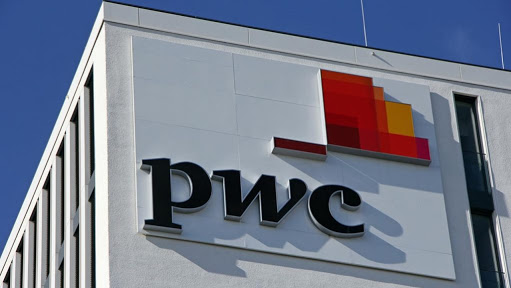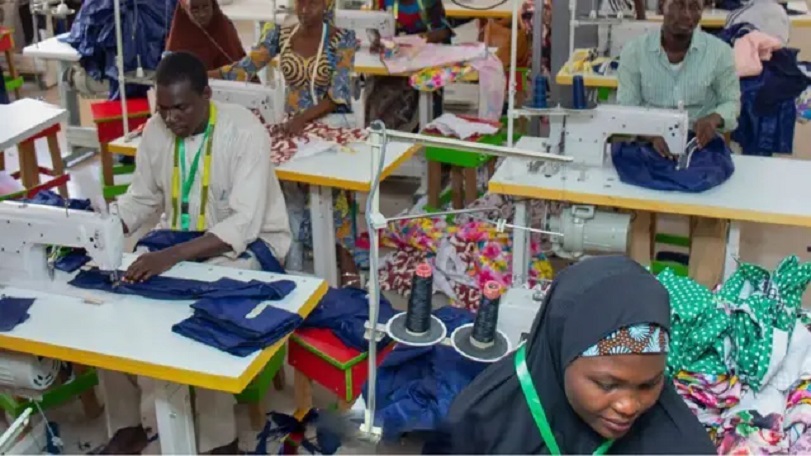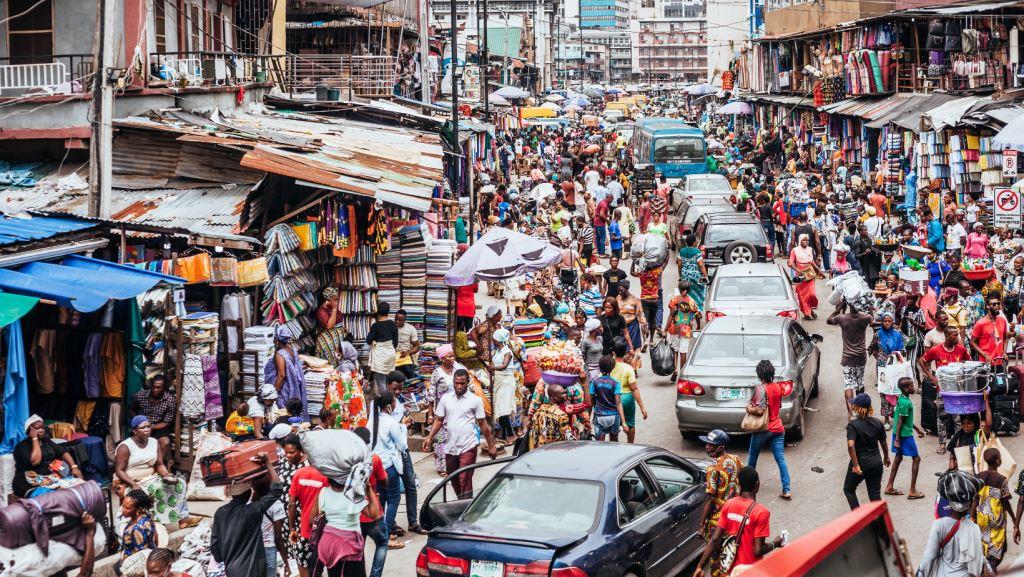Economy
African Capital Markets Show Recovery in 2017—PwC

By Modupe Gbadeyanka
Overall, African equity capital market transaction volume and value improved in 2017 over 2016. In terms of value, 2017 saw the largest initial public offerings (IPOs) over the trailing five-year period, and an increase in the total value of equity capital market (ECM) transactions of 49% between 2016 and 2017 in US dollar terms.
PwC released its 2017 African Capital Markets Watch publication today, which analyses equity, and debt capital market transactions that took place between 2013 and 2017 on exchanges throughout Africa, as well as transactions by African companies on international exchanges.
This report lists all new primary market equity initial public offerings (IPOs) and further offers (FOs) by listed companies, in which capital was raised on Africa’s principal stock markets and market segments. The report also includes IPO and FO activity of African companies on international exchanges or non-African companies on African exchanges, on an annual basis.
Andrew Del Boccio, PwC Capital Markets Partner notes: “Capital markets in Africa saw a recovery in 2017 with the positive impact of commodity stabilisation on economies such as Cote d’Ivoire and Nigeria, which emerged from five successive quarters of GDP declines, and resilience in the face of economic and political uncertainty in South Africa.”
Since 2013, there have been 519 African ECM transactions raising a total of $52.7 billion, up 17% in terms of capital raised over the previous five-year period. Overall, ECM activity in 2017 was the second highest since 2013 in terms of volume with 121 issuances, up 25% over the prior year, and the highest since 2013 in terms of value, driven mainly by a few significant IPOs and FOs during the year.
“We are optimistic about the pipeline of companies seeking to access the capital markets in 2018, including cross-border IPOs of African companies, given encouraging indicators in large markets such as South Africa, Egypt, and Nigeria, and the continued economic growth in East Africa and the Francophone West African countries,” Del Boccio comments.
African ECM activity in 2017 was largely driven by the financial services sector for FOs, and the consumer services sector for IPOs, though both of these statistics were impacted by a few very sizable transactions during the year. Businesses in sectors such as telecommunications, consumer goods and services, financials, and healthcare continued to form a significant component of African ECM activity.
Although levels of market capitalisation for many of Africa’s exchanges remain low in a global context, a number of initiatives have taken place to deepen liquidity and provide investment opportunities for foreign and domestic investors alike. Regulators in some African countries have made efforts in recent years to encourage companies in specific sectors to list shares on their domestic stock exchanges. Additionally, enhanced regulatory capital requirements have driven financial services companies to access both the debt and equity capital markets over the past year.
2017 also saw a greater focus by exchanges on small and medium sized enterprises (SMEs) with the introduction of junior or alternative boards. In South Africa, the entry of four new exchanges altered the South African listing environment. Although there have been a number of listings on these new boards, with more activity in 2018, the listings to date have been technical in nature, with no new equity proceeds raised.
African IPO market
2017 saw the second-largest volume in IPO activity (28) over the past five years and is the largest in value, with $2.9bn raised in IPO proceeds, exceeding 2015 (the year with the next-largest value raised over the past five years) by 42%. Over the past five years, there have been 134 IPOs by African companies on both African and international exchanges, raising $9.1bn, a 37% increase in capital raised over the preceding five year period, 2012-2016.
Despite the policy gridlock and economic and political uncertainty South Africa has experienced over the past five years, the JSE has maintained its dominant role in the African capital markets. In 2017, capital raised from IPOs by companies on the JSE in US dollar terms increased by 178% as compared to 2016. Since 2013, capital raised from IPOs by companies on the JSE alone of $4.8bn represents 52% of the total African IPO capital raised.
Over the five-year period, the Bourse de Tunis with 23 issuances, and the EGX with 13 issuances followed the JSE in terms of volume of IPO transactions. In terms of value over the past five years, the next largest value of IPO proceeds raised was on the EGX at $1.3bn.
While a stronger year for some exchanges in sub-Saharan Africa, IPO activity on the North African stock exchanges – Egypt, Morocco, Tunisia and Algeria – decreased by 61% in terms of the value of IPO proceeds. There was also no IPO activity in Ghana compared to 2016, which saw $102.0 million raised on the Ghana Stock Exchange.
In contrast, elsewhere on the continent, 2017 saw some significant increases in IPO value on exchanges in Namibia, Rwanda and Tanzania compared to the prior year.
The top 10 African IPOs by value took place in South Africa, Egypt, Tanzania and the Francophone West African region, represented by the BRVM. On a sector basis, for the first time in five years the consumer services sector dominated the African IPO market with 44% of total value, followed by the financial services sector with 26%. In terms of volume, financial services accounted for the greatest volume of IPOs with 50%, followed by consumer goods with 14%.
African FO market
In 2017 FO activity was on a par with 2015 levels in terms of transaction volume, at 93 FOs – this represented an increase of 27% on the prior year. In terms of proceeds raised, 2017 saw an increase of 42% on the prior year, though it fell short of the highs noted in 2015. Over the past five years, there have been 385 FOs by African companies, raising $43.6bn on both African and international exchanges.
Over the five-year period, the vast majority of FO activity took place in South Africa representing 65% and 86% of total FO volume and value, respectively. This is broadly consistent with the 2017 year, when South Africa accounted for 51% and 86% in total FO volume and value, respectively. Egypt accounted for the next largest amount of FO volume for the 2017 year at 14% and for the five-year period 2013-2017 at 6%, respectively. In terms of FO value, Mauritius accounted for the next-largest FO proceeds raised in 2017 at 5%, and Nigeria the next-largest proceeds for the five-year period at 4%.
During 2017, the sector composition of African FO activity was largely consistent with the five-year average in terms of value and volume, with the financial services sector contributing 56% of the total FO value, followed by the basic materials sector at 14%.
Inbound, outbound, domestic and cross-border activity, 2013-2017
In 2017, domestic activity represented 76% of total ECM activity in terms of volume, and 87% in terms of value. For African ECM data, this statistic is driven by significant activity on the larger exchanges such as the JSE and EGX. There was an overall drop of 17% and 44% in cross-border activity in 2017 compared to 2016 in terms of both volume and value respectively.
Outbound ECM volume in 2017 remained on a par with prior periods, ranging between a five-year low in 2016 of ten, and a high of 17 in 2014. However, there was a significant drop of 89% in the value of outbound ECM activity in 2017 compared to 2016.
African debt markets
In respect of DCM activity, non-local currency corporate issuances totalled $7.5bn, an increase of 68% in terms of value and 110% in terms of volume over the prior year, with several large first-time issuers tapping into a market with sustained appetite for emerging market yields. Most of this funding was targeted at refinancing existing debt, but there were also instances of these proceeds being put to use for acquisitions or strategic capital expenditure.
The year ahead
Del Boccio comments: “In terms of capital markets activity, we expect that the recovery seen in 2017 will gain momentum in 2018 against a more stable political and economic backdrop. This will likely include an increase in cross-border ECM activity for regional players looking to compete in global markets, the continued impact of partial privatisation efforts through the capital markets, and the effect of other regulatory drivers that will lead African companies’ capital markets.”
Economy
LIRS Urges Taxpayers to File Annual Returns Ahead of Deadline

By Modupe Gbadeyanka
All individual taxpayers in Lagos State have been advised to file their annual tax returns ahead of the March 31 deadline.
This appeal was made by the Lagos State Internal Revenue Service (LIRS) in a statement issued by its Head of Corporate Communications, Mrs Monsurat Amasa-Oyelude.
The notice quoted the chairman of LIRS, Mr Ayodele Subair, as saying that timely filing remains both a constitutional and statutory obligation as well as a civic responsibility.
The statutory filing requirement applies to all taxable persons, including self-employed individuals, business owners, professionals, persons in the informal sector, and employees under the Pay-As-You-Earn (PAYE) scheme.
In accordance with Section 24(f) of the 1999 Constitution of the Federal Republic of Nigeria, Sections 13 &14(3) of the Nigeria Tax Administration Act 2025 (NTAA), every individual with taxable income is required to submit a true and correct return of total income from all sources for the preceding year (January 1 to December 31, 2025) within 90 days of the commencement of a new assessment year.
“Filing of annual tax returns is not optional. It is a legal requirement under the Nigeria Tax Administration Act 2025. We encourage all Lagos residents earning taxable income to file early and accurately.
“Early and accurate filing not only ensures full adherence with statutory requirements, but supports effective monitoring and forecasting, which are critical to Lagos State’s fiscal planning and long-term sustainability,” Mr Subair stated.
He further noted that failure to file returns by the statutory deadline attracts administrative penalties, interest, and other enforcement measures as prescribed by law.
To enhance convenience and efficiency, all individual tax returns must be submitted electronically via the LIRS eTax portal at https://etax.lirs.net. The platform enables taxpayers to register, file returns, upload supporting documents, and manage their tax profiles securely from anywhere.
In keeping with global best practices, Mr Subair reiterated that LIRS continues to prioritise digital tax administration and taxpayer support services. He affirmed that the LIRS eTax platform is secure and accessible worldwide. Taxpayers requiring assistance may visit any of the LIRS offices or other channels.
Economy
NNPC Targets 230% LPG Supply Surge to 5MTPA Under Gas Master Plan 2026

By Adedapo Adesanya
The Nigerian National Petroleum Company (NNPC) Limited has said the Gas Master Plan 2026 targets over 230 per cent scale-up of Liquefied Petroleum Gas (LPG) supply from 1.5 million tonnes per annum (MTPA) to 5 MTPA this year.
The Executive Vice President for Gas, Power and New Energy at NNPC, Mr Olalekan Ogunleye, unveiled the strategic direction of the NNPC Gas Master Plan 2026, outlining an aggressive expansion drive to position Nigeria as a regional and global gas powerhouse.
Mr Ogunleye delivered the keynote address at the 2026 Lagos Energy Week, organised by the Society of Petroleum Engineers (SPE), where he detailed plans to accelerate gas development, deepen infrastructure and significantly scale domestic supply.
According to him, the Gas Master Plan targets a scale-up of LPG or cooking gas supply from 1.5 MTPA to 5 MTPA, alongside expanded feedstock for Mini-LNG and Compressed Natural Gas (CNG) projects.
“The NNPC Gas Master Plan 2026 is a blueprint to unlock Nigeria’s vast gas potential and translate it into tangible economic value,” Mr Ogunleye said.
He added that the strategy would also drive exponential growth in Gas-Based Industries, GBIs, strengthening local manufacturing, fertiliser production and power generation.
“Our renewed focus is on turning abundant gas resources into inclusive economic growth and improved quality of life for Nigerians,” he stated.
Mr Ogunleye said the plan aligns with the Federal Government’s Decade of Gas initiative and the presidential production targets of achieving 10 billion cubic feet per day by 2027 and 12 BCF/D by 2030.
Industry leaders at the event, including executives from Chevron Corporation, Esso Exploration and Production Nigeria Limited, Midwestern Oil and Gas Company Limited, Abuja Gas Processing Company and Shell Nigeria Gas, commended the plan and praised Ogunleye’s leadership in driving implementation excellence.
The new blueprint signals NNPC’s determination to anchor Nigeria’s energy transition on gas, leveraging infrastructure expansion and domestic utilisation to consolidate the country’s status as Africa’s largest gas reserve holder.
Economy
Shettima Blames CBN’s FX Intervention for Naira Depreciation

By Adedapo Adesanya
Vice President Kashim Shettima has attributed the Naira’s recent depreciation to the intervention of the Central Bank of Nigeria (CBN) in the foreign exchange (FX) market, stating that the currency could have strengthened to around N1,000 per Dollar within weeks if the apex bank had allowed market forces to prevail.
The local currency has dropped over N8.37 on the Dollar in the last week, as it closed at N1,355.37/$1 on Tuesday at the Nigerian Autonomous Foreign Exchange Market (NAFEM), after it went on a spree late last month and into the early weeks of February.
However, speaking on Tuesday at the Progressive Governors’ Forum (PGF), Renewed Hope Ambassadors Strategic Summit in Abuja, the Nigerian VP said the intervention was to ensure stability.
“In fact, if not for the interventions by the Central Bank of Nigeria yesterday, the 1,000 Naira to a Dollar we are going to attain in weeks, not in months. But for the purpose of market stability, the CBN generously intervened yesterday.
“So, for some of my friends, especially one of our party leaders who takes delight in stockpiling dollars, it is a wake-up call,” the vice president said.
He was alluding to CBN buying US Dollars from the market to slow down the rapid rise of the Naira.
Latest information showed that last week, the apex bank bought about $189.80 million to reduce excess Dollar supply and control how fast the Naira was gaining value.
The move was aimed at preventing foreign portfolio investors from exiting Nigeria’s fixed-income market, as large-scale sell-offs could heighten demand for US Dollars, intensify capital flight, and exert further pressure on the exchange rate.
Amid this, speaking after the 304th meeting of the monetary policy committee (MPC) of the CBN on Tuesday, Governor of the central bank, Mr Yemi Cardoso, said Nigeria’s gross external reserves have risen to $50.45 billion, the highest level in 13 years.
This strengthens the country’s foreign exchange buffers, enhances the apex bank’s capacity to defend the Naira when needed, and boosts investor confidence in the stability of the Nigerian FX market.
-

 Feature/OPED6 years ago
Feature/OPED6 years agoDavos was Different this year
-
Travel/Tourism10 years ago
Lagos Seals Western Lodge Hotel In Ikorodu
-

 Showbiz3 years ago
Showbiz3 years agoEstranged Lover Releases Videos of Empress Njamah Bathing
-

 Banking8 years ago
Banking8 years agoSort Codes of GTBank Branches in Nigeria
-

 Economy3 years ago
Economy3 years agoSubsidy Removal: CNG at N130 Per Litre Cheaper Than Petrol—IPMAN
-

 Banking3 years ago
Banking3 years agoSort Codes of UBA Branches in Nigeria
-

 Banking3 years ago
Banking3 years agoFirst Bank Announces Planned Downtime
-

 Sports3 years ago
Sports3 years agoHighest Paid Nigerian Footballer – How Much Do Nigerian Footballers Earn





















